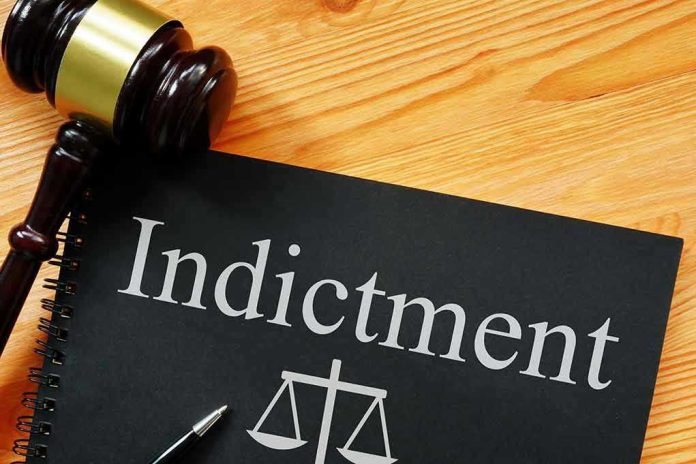
For the first time in American history, a former National Security Advisor faces 18 felony counts under the Espionage Act—raising urgent questions about the politicization of federal justice and the very future of constitutional government.
Story Snapshot
- John Bolton indicted on 18 federal counts for mishandling classified information, including unlawful transmission and retention.
- The unprecedented case targets a former National Security Advisor under the Espionage Act amid allegations of political retribution.
- The indictment follows high-profile DOJ prosecutions of other Trump critics, fueling debate over justice system impartiality.
- Bolton’s family and sensitive national security materials are entangled at the center of the controversy.
Bolton Faces Espionage Act Charges in Historic Indictment
The Department of Justice has brought 18 felony charges against John Bolton, former National Security Advisor under President Donald Trump, for alleged mishandling of classified materials. Federal prosecutors claim Bolton unlawfully transmitted national defense information, including Top Secret/SCI documents, to unauthorized recipients—specifically his wife and daughter—using personal email and messaging apps. The charges also cover the retention of sensitive documents at his Maryland home and on personal devices. This moves the battle over government secrecy and accountability into uncharted territory, with the first-ever Espionage Act case against someone who held such a high national security post.
Bolton’s indictment follows an extended DOJ investigation that included a sweeping FBI search of his Maryland residence and Washington, D.C. office in August 2025. The grand jury’s October 16 indictment comes after years of tension between Bolton and Trump, marked by public criticism and the publication of a tell-all memoir. Federal authorities emphasize the gravity of the breach, while Bolton maintains his innocence and claims the prosecution is little more than political retribution. The timeline reveals a pattern: other prominent critics of the Trump administration, including James Comey and Letitia James, have faced similar legal action, intensifying debate over the impartiality of justice in the new administration.
Political Retribution or Equal Application of the Law?
Attorney General Pamela Bondi, leading the prosecution, insists that “no one is above the law.” Critics counter that the DOJ, now led by Trump appointees, is targeting political adversaries under the guise of national security. This dynamic has led to fierce arguments about whether these prosecutions represent overdue accountability—or a dangerous weaponization of the justice system to silence dissenters. Bolton’s adversarial relationship with Trump, particularly after leaving the administration and publishing a memoir critical of the president, has put him in the crosshairs of renewed scrutiny. For conservatives who value constitutional checks and balances, the possibility of selective justice is a matter of grave concern.
Bolton was released pending trial, with legal experts predicting a long and highly publicized process. If convicted, he faces up to ten years per count—a potential life sentence for one of the most prominent national security figures of the past decade. The unprecedented nature of the indictment—no former National Security Advisor has ever faced Espionage Act charges—underscores the stakes for both the rule of law and the integrity of our constitutional system.
Broader Implications for National Security and Liberty
The fallout from this indictment stretches beyond Bolton’s personal fate. Legal analysts warn of a chilling effect on future whistleblowers, memoir authors, and anyone who dares challenge the administration. The prosecution sets a precedent: senior officials, even at the highest levels, are now vulnerable to criminal penalties for the handling of classified materials, especially if they fall out of favor with those in power. This case also renews scrutiny of information security protocols across government, as well as the standards by which political enemies are investigated. Americans concerned about government overreach see this as another front in the fight to preserve due process and constitutional protections from partisan abuse.
Internationally, allies and adversaries alike are watching closely as the U.S. debates the balance between security, transparency, and political accountability. At home, the situation has fueled polarization: some call for even stricter enforcement against “deep state” actors, while others fear a dangerous erosion of civil liberties and trust in the impartiality of federal law enforcement. The publishing industry, legal professionals, and the intelligence community all face new uncertainties about the boundaries of acceptable conduct and the risks of stepping over increasingly politicized lines. As this historic case unfolds, Americans must grapple with the reality that the constitutional order—long the envy of the world—may be more fragile than ever.
Expert Perspectives Highlight Constitutional Concerns
Legal and national security experts agree on the unprecedented nature of prosecuting a former National Security Advisor under the Espionage Act. Some warn that the move blurs the line between legitimate enforcement and political vendetta, while others point to the undeniable seriousness of mishandling classified information. The sharp divide reflects broader anxieties about the future of American justice and the enduring need for vigilance in defense of liberty. As the courtroom drama continues, one thing is clear: the outcome will shape how our nation defines the limits of executive power, accountability, and the rule of law for years to come.
Sources:
Prosecutors expected to seek grand jury indictment for former Trump adviser John Bolton
John Bolton indicted on 18 counts for mishandling classified information
DOJ: John Bolton indicted, raising questions of Trump retribution











